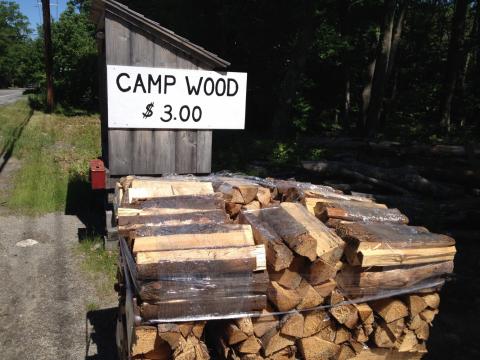Exterior Firewood Quarantine Revised

In 2011, New Hampshire enacted a quarantine prohibiting untreated out-of-state firewood, unless the firewood was imported with a state-issued compliance agreement. This quarantine is necessary to protect the state’s forest resources from destructive invasive pests moved in firewood. This includes pests like the Asian longhorned beetle, brown spruce longhorned beetle, emerald ash borer, oak wilt disease, and spotted lanternfly – all known from states and Canadian provinces near to New Hampshire. That quarantine has been revised in order to strengthen protections against a range of pests capable of being introduced in firewood, as well as to protect forest resources independent of existing or future federal quarantines.
Revisions to the Quarantine
As of September 1, 2018, revisions to the State of New Hampshire Firewood Quarantine are in effect. Revisions to the quarantine include:
- Clarification of the definition of firewood to exclude non-firewood forest products like saw logs, chips, and craft wood.
- Reducing the required temperature and duration to produce heat-treated firewood to 60°C (140°F) for 60 minutes. These lower treatment conditions are adequate to kill pests and are achievable by a wider range of firewood kilns. If you wish to have your New Hampshire kiln certified, please contact Morgan Dube at (603) 271-3681.
- Updating the conditions under which a compliance agreement may be issued to transport untreated out-of-state firewood into New Hampshire. Compliance agreements for untreated out-of-state firewood will only be issued if the firewood is to be transported directly to a facility, like a certified heat-treatment kiln, that will mitigate the risk of introducing invasive pests. Kilns wishing to assist their out-of-state suppliers to receive a compliance agreement should provide a supplier list, with contact information, to Morgan Dube at (60 271-3681. Other processes which can mitigate risk, including pressure treatment or steam sterilization of firewood, may be considered for a compliance agreement—however, the producer would be required to demonstrate that: a) the risk mitigation is based upon the treatment rather than the origin of the firewood; b) the treatment measurably reduces the risk from a variety of pests and all life stages, rather than for a single pest; and c) the treatment process can be documented and verified by an inspector.
- Those harvesting firewood in New Hampshire and then processing it in another state for transportation back into New Hampshire may be eligible for a compliance agreement provided that they can clearly demonstrate the origin of the firewood with chain of custody documentation and show that New Hampshire-origin firewood is identifiable and separated in their yard. Other restrictions may be required based on wood species, time of year, etc. Additional restrictions would be identified during an initial site visit. Be aware—Maine and Vermont also prohibit importation of out-of-state untreated firewood. Check with regulatory agencies in those states to ensure that you can import New Hampshire-origin firewood for processing.
Use Local Firewood
In addition to the exterior firewood quarantine, residents and visitors to New Hampshire can greatly reduce the impact of invasive pests on our forests. Those enjoying our outdoor resources should be aware of the risks and costs associated with introduction of invasive pests. It is also important to buy or gather firewood locally rather than transporting it long distances. Pests are moved in firewood farther and faster than they can move on their own. Another simple way to protect New Hampshire’s forests is to purchase or gather only the amount of firewood needed. That will ensure that the firewood is burned completely by the end of the visit, or the end of the season, reducing the opportunity for insects to emerge. Use www.firewoodscout.org to find locally-sourced firewood.
Check out Don't Move Firewood for information on some forest pests of concern nationally that can be moved in firewood. Visit www.nhbugs.org, or follow NHBugs on Facebook, for more New Hampshire-specific information about forest pests.
